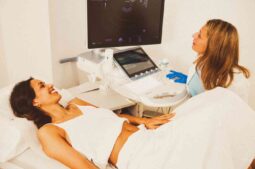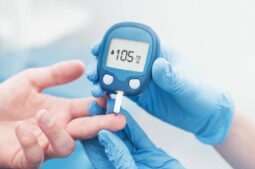For people who are at that point in their lives when they are actively intending to become pregnant, it’s easy to forget that 85% of couples will not experience any problems at all. For this fortunate majority, as long as they have regular sex, the woman will be pregnant within one year. But having taken that momentous decision, a year may seem like an age, and many women are keen to know how to get pregnant with the least possible delay.
While there are no guarantees of a quick result, there are in fact a few measures that women can take to maximise their chances of getting pregnant. These range from knowing their most fertile times to simple lifestyle tips that can help to enhance fertility. There are also some nutritional factors which are not only desirable but essential during this exciting pre-conception period.
When is the best time for getting pregnant?
Let’s go back to basics for Lesson One in human biology! Getting pregnant naturally is not going to happen if you don’t have sex, and you’re not going to conceive unless a sperm is in the right place at the right time to fertilise the egg. So far so good. But when is the right time? This is where it is important to understand your menstrual cycle and your pattern of ovulation. Make a note of the date of the first day of your period each month so you can calculate the time between periods and whether or not they are regular. For most women, that’s somewhere around a 28-day cycle. If your periods are irregular, it can be trickier but it is still possible to predict your day of ovulation.
Women with regular periods can calculate that their ovulation date is 14 days before the start of the next cycle. In any case, even if you have irregular periods, ovulation will probably take place 12 to 16 days before the start of the next period. This is important because although sperm can survive in a woman’s body for up to five days, the egg is only fertile for 12 to 16 hours following its release. The window of fertility thus covers a six-day period, being five days before plus the day of ovulation. How to get pregnant is to therefore have sex every couple of days during this fertile time.
Preconception care and nutrition
Knowing your pattern of ovulation is the single most important thing you can do to increase your chances of conception. But there are plenty of other steps you can take to tip the balance of probabilities in your favour. Many of these will also stand you in good stead later, to support a healthy pregnancy.
Maintain a healthy body weight
Being overweight puts a woman at increased risk of ovulation disorders. This is because being overweight can increase the production of oestrogen which in turn disrupts the cycle of ovulation. A study carried out in 2017 by the American research body the National Institutes of Health found that couples in which both partners were obese took over 55% longer to conceive than those whose weights were normal.
The need to maintain a normal weight applies to being underweight too. Women who are significantly underweight can experience a complete cessation of periods, known as anovulation, which results, at least for the time being, in infertility.
Moderate your exercise regime
Physical activity is obviously a good thing as far as overall health in preparation for conception and pregnancy goes. However, women are warned that extremely strenuous exercise can also interfere with the ovulatory cycle and that exercise in moderation is best for preconception planning.
Boost your vitamin intake
We’ve all heard of folic acid, but not everyone knows that it is just one of the B vitamins. These are all important for good health but Vitamin B9, known as folate or folic acid, is the one which helps prevent birth defects such as spina bifida. You need to take a supplement containing at least 400 mcg as soon as you even think of trying to get pregnant. This is because the development problems which it can counteract occur very early in the gestational period, around three to four weeks after conception, before you may even know that you are pregnant. All of your other vitamin requirements can almost certainly be met by eating a good variety of healthy foods.
Kick the smoking habit and go easy on the alcohol
You already know that smoking is harmful to all aspects of your health, but it can also make conception less likely and so quitting is one of the best actions you can take to improve your chances. For more information on why this is important, take a look at our article on quitting smoking during preconception. The occasional glass of wine is fine, but once you become pregnant it’s safest to give it up altogether.
Be realistic about when to seek help
Do remember that you probably won’t experience any problems, but also try to have a clear idea of when would be a sensible time to seek help if the longed-for pregnancy has not happened. We, along with most other fertility experts, recommend that if you are under 35 and you have not become pregnant within a year of trying, you should seek help with identifying the problem. For women over 35, because of the inevitable age-related decline in fertility, you should get help after six months.
Infertility may be due to a woman’s problem or it could be attributable to the male partner. Either way if you are part of a couple, you will both needs tests, advice and recommendations for treatment. Don’t put it off. The sooner you seek help, the sooner, if you are among the majority of patients, you will achieve your dream of holding your baby in your arms.
If you’d like to know more about what to expect, have a look at our video about your first visit to IVI. Then, when you’re ready to get in touch with us, you will have taken the first step on your fertility journey.





3 Comments
Thank you for providing the useful information to get pregnant
The is probably the best and concise information. The post couldn’t be written any better.
What a comprehensive post it is. You did cover all the aspects of pregnancy very well. Keep writing.